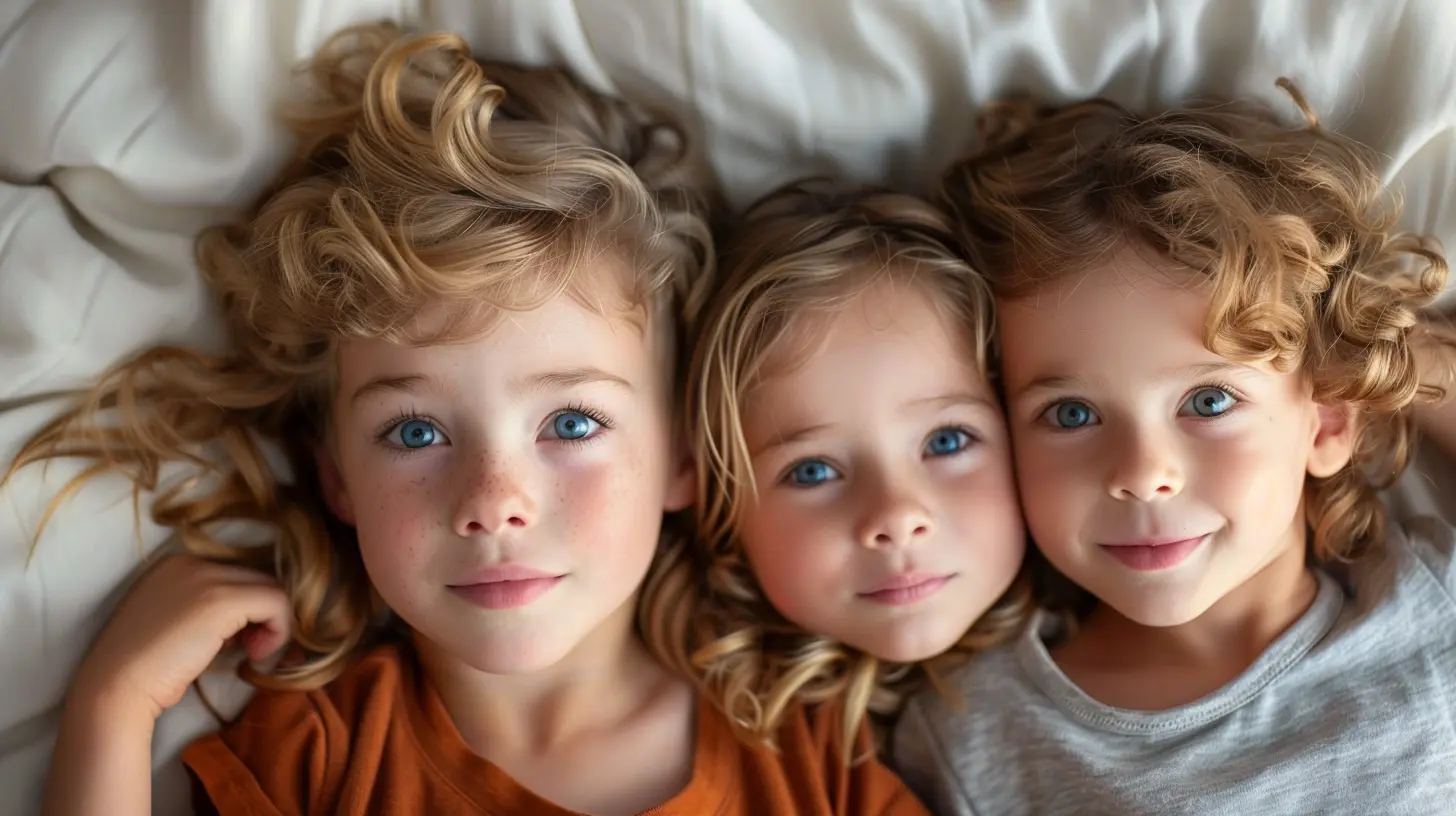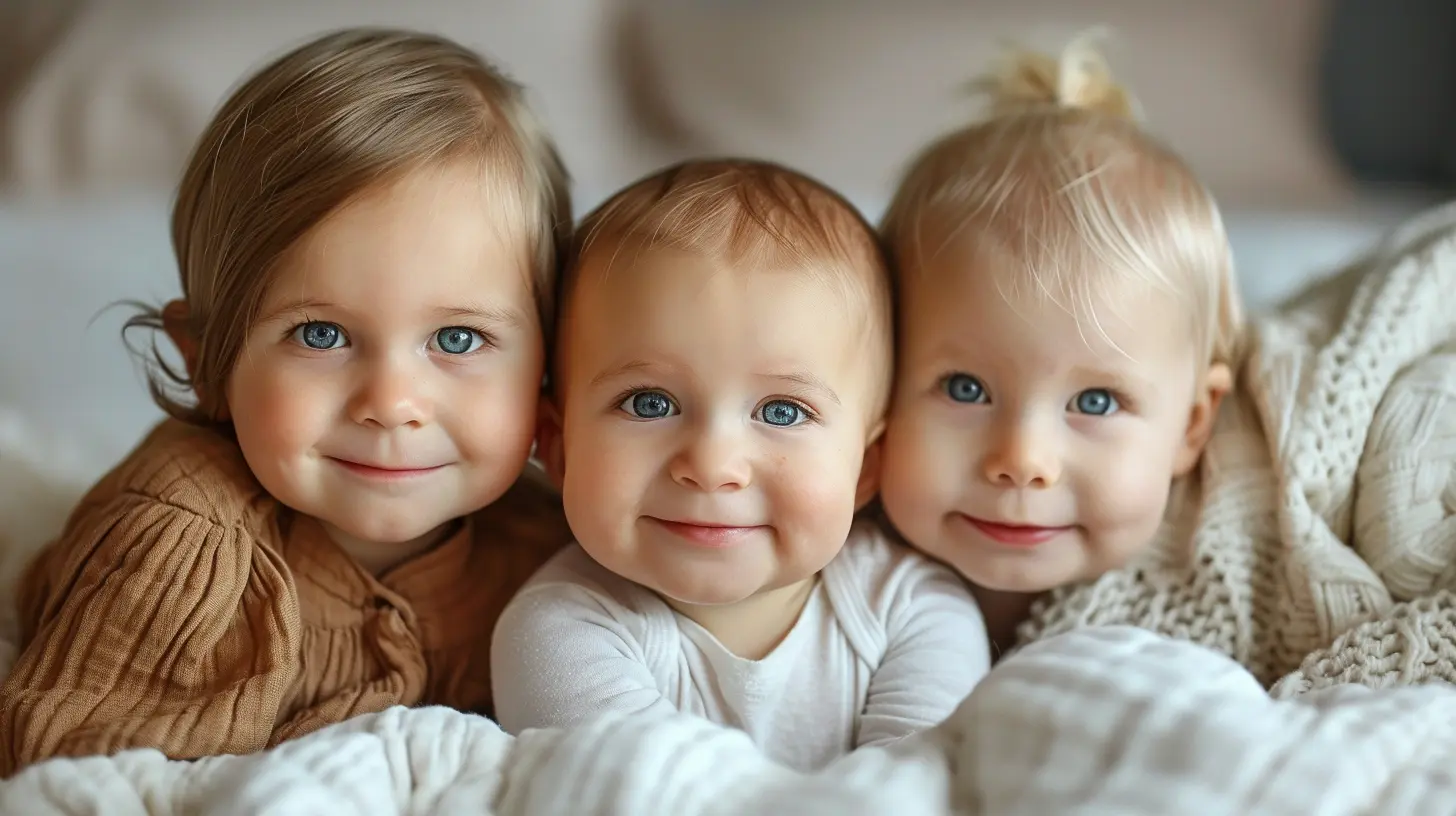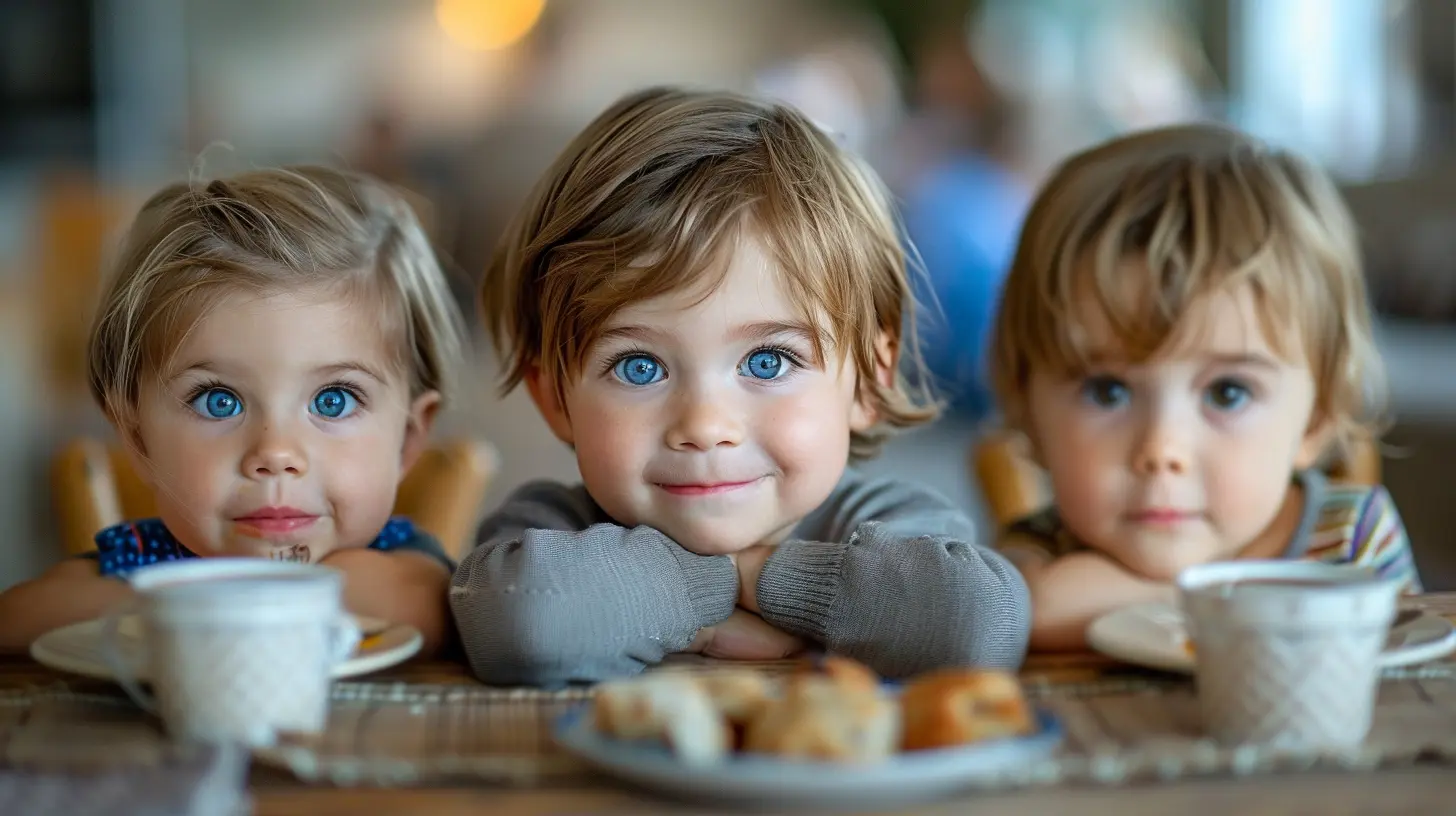How Birth Order Shapes Personality in Children
10 November 2025
Have you ever wondered why your eldest child seems so responsible while your youngest is the family comedian? Or why middle children often march to the beat of their own drum? It turns out, birth order might have a lot to do with it.
Psychologists and researchers have long debated how a child’s position in the family influences their personality, behaviors, and life choices. While family dynamics, parenting styles, and genetics all play a role, birth order can shape key aspects of a child's character.
So, whether you're a proud firstborn, a rebellious middle child, or the spoiled youngest, let's break down how the order in which you're born can impact your personality. 
The Firstborn: The Responsible Leader
Firstborns often take on the role of the responsible, mature leader in the family. Since they arrive first, they get their parents' undivided attention (at least for a while). Studies suggest this can lead to higher confidence and a stronger sense of responsibility.Key Traits of Firstborns
- Natural Leaders – Being the oldest means they often take charge, whether it's organizing family activities or guiding younger siblings.- Perfectionists – Firstborns can be hard on themselves, always striving for success and approval.
- Rule Followers – They tend to respect authority and follow the rules because they’re used to parental expectations.
- Achievement-Oriented – Many firstborns are high achievers, pushing themselves academically and professionally.
Why Firstborns Are This Way
Since they are the only child for a period, they receive all of their parents' attention and expectations. Once younger siblings arrive, they often feel a duty to help take care of them, which can naturally develop leadership skills. Over time, they may take on a mini-parent role, guiding and setting an example for their siblings.
The Middle Child: The Peacemaker
Ah, the classic middle child—often feeling "stuck" between the overachieving firstborn and the attention-grabbing youngest. But being in the middle comes with its own unique strengths!Key Traits of Middle Children
- Independence – Since they aren't the center of attention, they learn to navigate life on their own.- Peacemakers – Middle children are often excellent at resolving conflicts and maintaining harmony.
- Social Butterflies – They tend to be outgoing and have strong friendships outside the family.
- Rebels or Free Spirits – Some middle children develop a rebellious streak, feeling the need to carve out their own unique identity.
Why Middle Children Are This Way
Middle children don’t get the same intense attention as the firstborns, nor the spoiling of the youngest. This can lead them to adapt by being flexible, independent, and socially skilled. Their role in the family often pushes them to be mediators, making them great at seeing different perspectives.
The Youngest Child: The Free-Spirited Entertainer
The baby of the family is often the most charming and attention-seeking. By the time the youngest arrives, parents are usually more relaxed, leading to a different parenting style than what the firstborn experienced.Key Traits of Youngest Children
- Charming and Outgoing – They know how to win people over, often using humor and charisma.- Risk-Takers – Many youngest children are more adventurous and willing to take risks.
- Creative and Free-Spirited – They tend to think outside the box and embrace fun and spontaneity.
- Sometimes Spoiled – Being the last child, they often get away with more than their older siblings did.
Why Youngest Children Are This Way
By the time parents get to the youngest, they're often more relaxed and lenient. Younger siblings also learn by observing their older brothers and sisters, which can make them quick learners. However, because they’re used to being the "baby," they might rely on charm rather than responsibility.
The Only Child: A Mix of Firstborn and Youngest Traits
What about children who grow up without siblings? Only children are a fascinating blend, often displaying characteristics of both firstborns and youngest children.Key Traits of Only Children
- Mature and Responsible – Growing up around adults can make them seem more mature for their age.- Independent Thinkers – They learn to entertain themselves and often develop strong imaginations.
- Perfectionists – Like firstborns, they can be high achievers with perfectionist tendencies.
- Sometimes Lonely – Without siblings, they may crave peer companionship more than kids with brothers and sisters.
Why Only Children Are This Way
Without siblings to compete with, only children soak up all their parents’ attention, often leading to strong academic and social skills. However, they may also feel pressured by the high expectations placed on them.Factors That Can Influence Birth Order Personality Traits
While birth order plays a role, it's not the only factor shaping personality. Other things also contribute, such as:- Parenting Style – Strict or relaxed parenting can impact how a child behaves.
- Gender Differences – Boys and girls might experience birth order roles differently.
- Blended Families – Step-siblings and half-siblings can change the traditional birth order dynamic.
- Age Gaps – Large age gaps between siblings can lead to a child feeling like an "only child."
So, while birth order influences personality, it's not a strict rule. Every child is different, and environment, culture, and parenting styles all leave their mark too.
Does Birth Order Influence Career Choices?
Believe it or not, birth order can even play a role in the careers people choose!- Firstborns – More likely to pursue leadership roles (CEOs, managers, doctors).
- Middle Children – Excel in teamwork-based jobs (diplomats, social workers, teachers).
- Youngest Children – Tend to take creative or risk-taking paths (artists, entrepreneurs, entertainers).
- Only Children – Thrive in independent-driven careers (writers, scientists, researchers).
Of course, these are general trends—you can be the youngest child and still grow up to be an ambitious CEO!
Final Thoughts
Birth order isn't a magic formula, but it does give us insight into why siblings can be so different even when raised under the same roof. Each position in the family comes with its own strengths and challenges.Next time you catch yourself wondering why your eldest is so responsible, your middle child is the peacekeeper, and your youngest is the life of the party—remember, birth order might just be playing a bigger role than you think!
What about you? Do you see yourself in these descriptions? Feel free to share how your birth order has shaped your personality!
all images in this post were generated using AI tools
Category:
Child DevelopmentAuthor:

Alexandra Butler
Discussion
rate this article
1 comments
Hazel Campbell
“Embrace your unique birth order! Every sibling dynamic brings special traits—after all, variety is the spice of life!”
November 10, 2025 at 6:01 AM

Alexandra Butler
Thank you for your insightful comment! Embracing our unique birth order indeed enriches our understanding of personality development and sibling dynamics.


